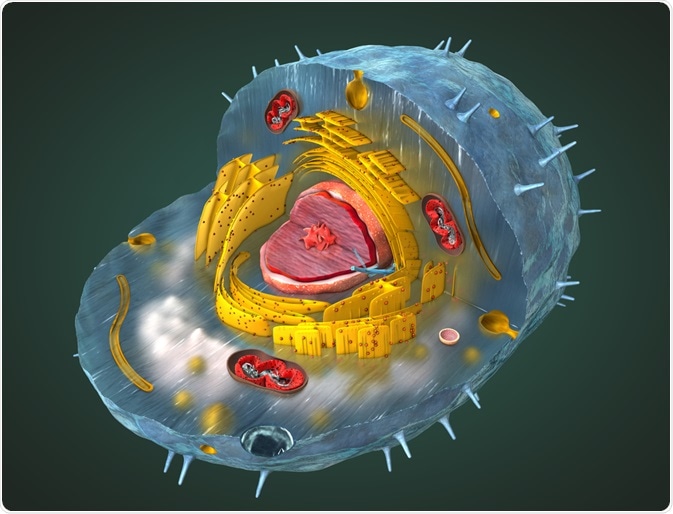Understanding the metabolic changes that occur in various disease states allows a more accurate diagnosis to be made. Further, understanding mechanisms behind metabolic changes establishes a relationship between phenotype, biological function, and metabolic markers.
 Christoph Burgstedt | Shutterstock
Christoph Burgstedt | Shutterstock
While genomics and proteomics are concerned with upstream events as a consequence of genetic processes and the resulting protein populations, metabolomics measures the end product once genetic, environmental, pharmacological and pathological influences have been accounted for.
The Human Metabolome Database presently lists over 114,000 molecules. Each cell type, tissue or organ has a particular metabolomic fingerprint, unique due to the number and type of certain metabolites that are found there. Unexpected amounts or types of metabolites may imply a current or impending health issue.
What are the diagnostic applications of metabolomic profiling?
Diagnosing organ dysfunction
Many types of organ dysfunction may be diagnosed through metabolomic profiling, particularly where the organs are responsible for the processing of chemicals from one form to another, or of metabolizing. For example, the onset of fatty liver disease and kidney disease can be predicted with high accuracy in young adults due to high concentrations of circulating lipid and fatty acid metabolites.
Predicting disease state
Many conditions that a patient is likely to develop may be predicted by the population of metabolites, such as heart failure. Pharmaceutical companies frequently perform metabolomic profiling on patients undergoing clinical trials, and the biodistribution, efficacy, and toxicity of a drug can be determined.
Metabolomic profiling can be used to assess the impact of any genetic changes to the metabolome. Post-mortem metabolomic profiling of the brain can provide insights regarding a wide range of neuronal disorders and mental illnesses, such as Alzheimer’s, schizophrenia, depression and others.
What analytical techniques are applied to study metabolome?
Multiple complimentary analytical techniques are used to determine the presence and concentration of various metabolites. The metabolites represent a wide array of chemical classes, including organic acids, fatty acids, sugars, alcohols, steroids, nucleic acid bases, phospholipids, and many more.
A diverse collection of analytical methods is usually employed for non-targeted metabolomic profiling. Nuclear magnetic resonance spectroscopy, mass spectrometry, Fourier-transform infrared spectroscopy, and gas and liquid chromatography are frequently used.
What is non-invasive metabolomic profiling?
Although blood and tissue are commonly used sample sources for metabolomic profiling, the collection is frequently uncomfortable for the patient and requires highly trained staff to properly extract and handle these samples. Urine, exhaled breath, saliva, sweat, hair, and fecal extract represent non-invasive sources for metabolomic profiling,
Further Reading
Last Updated: Jan 22, 2019